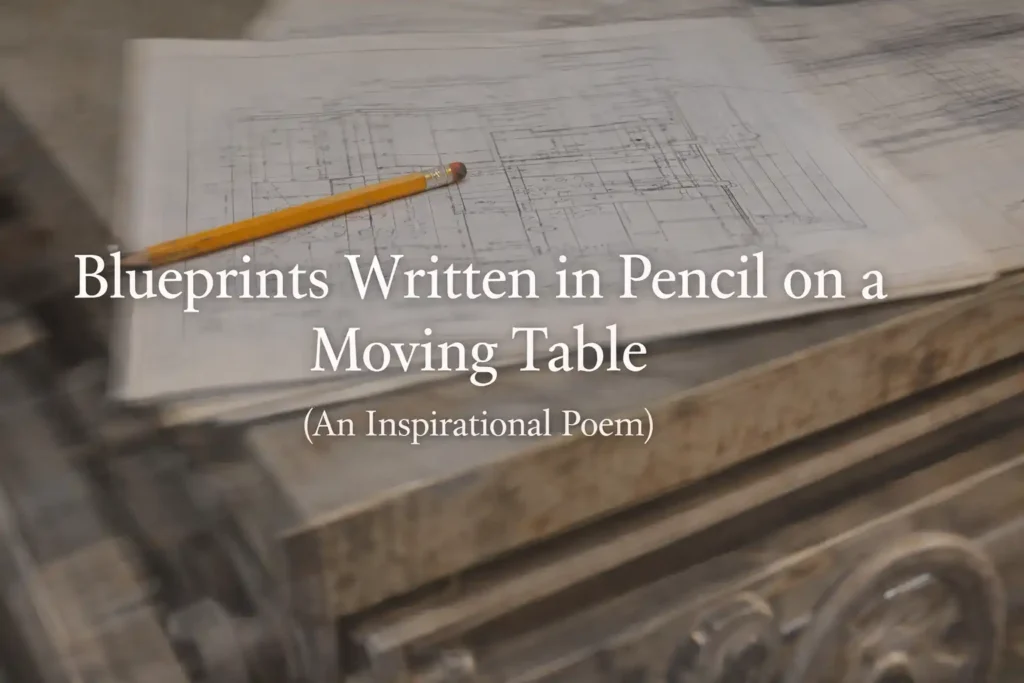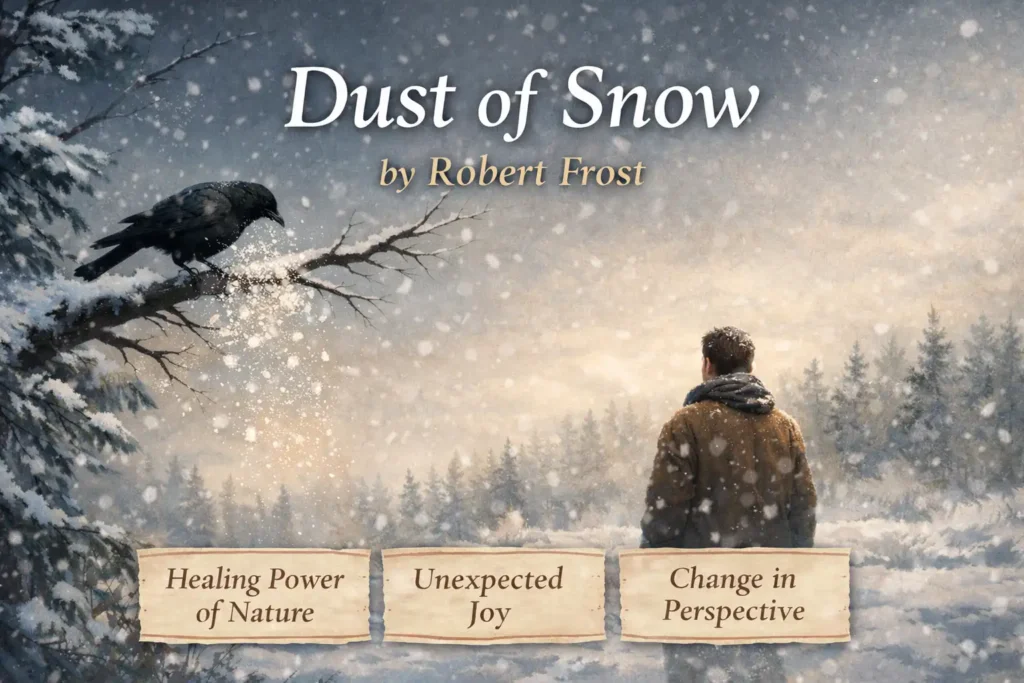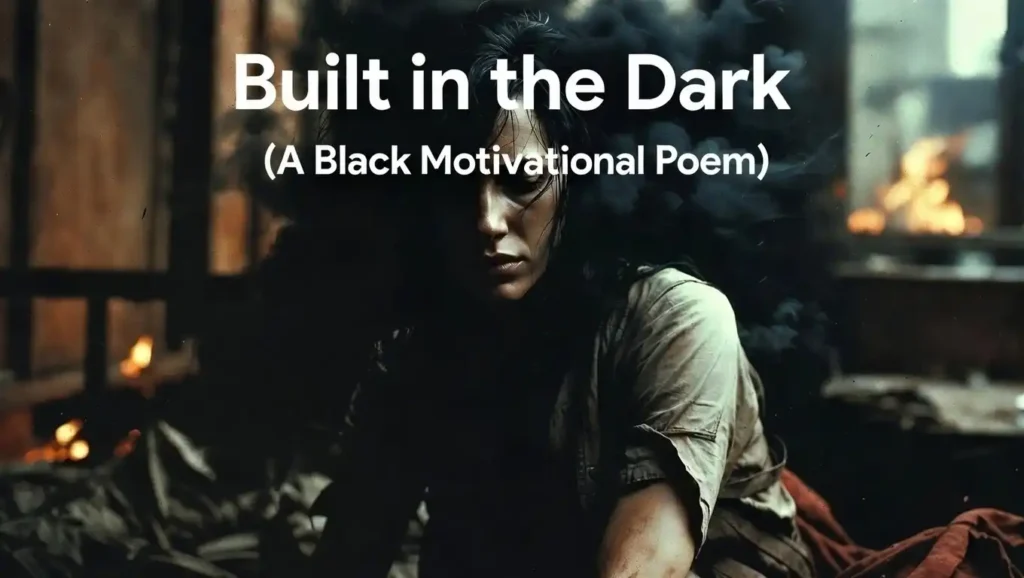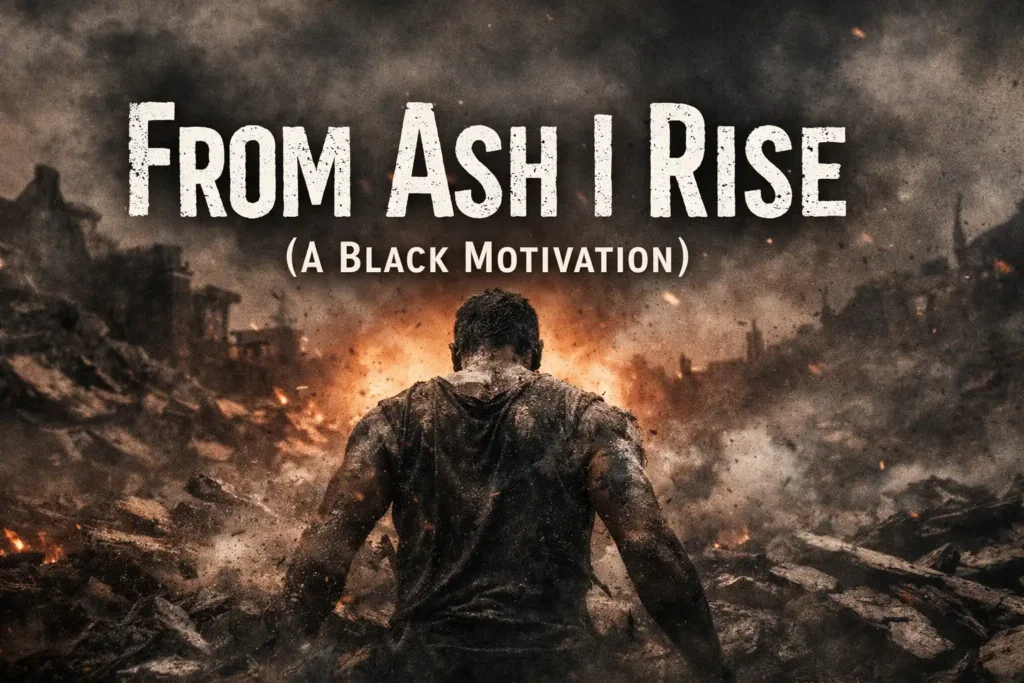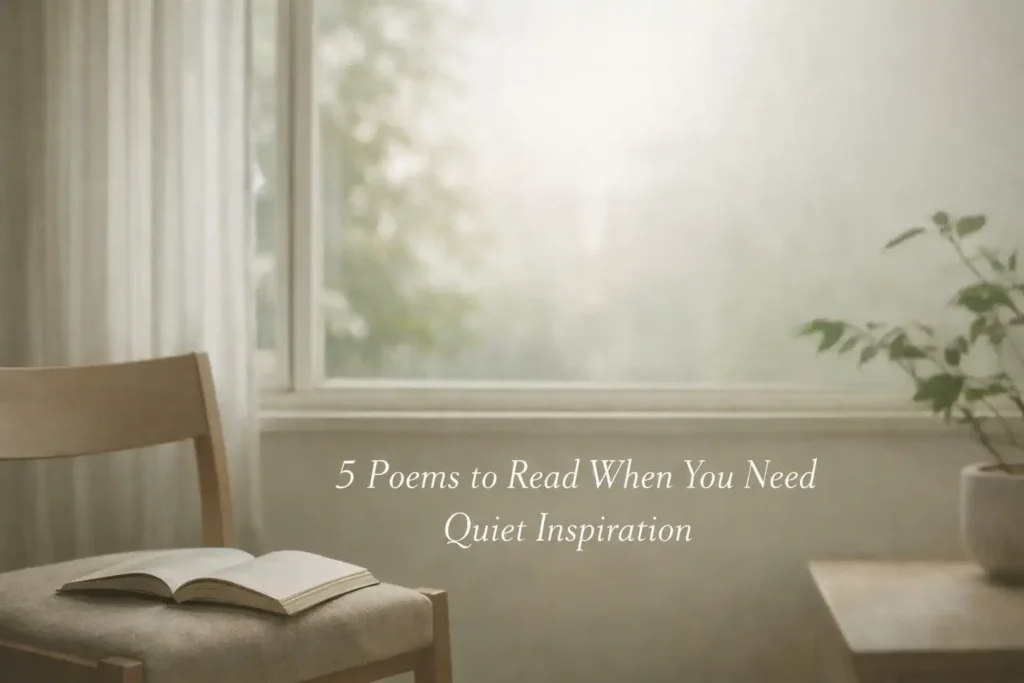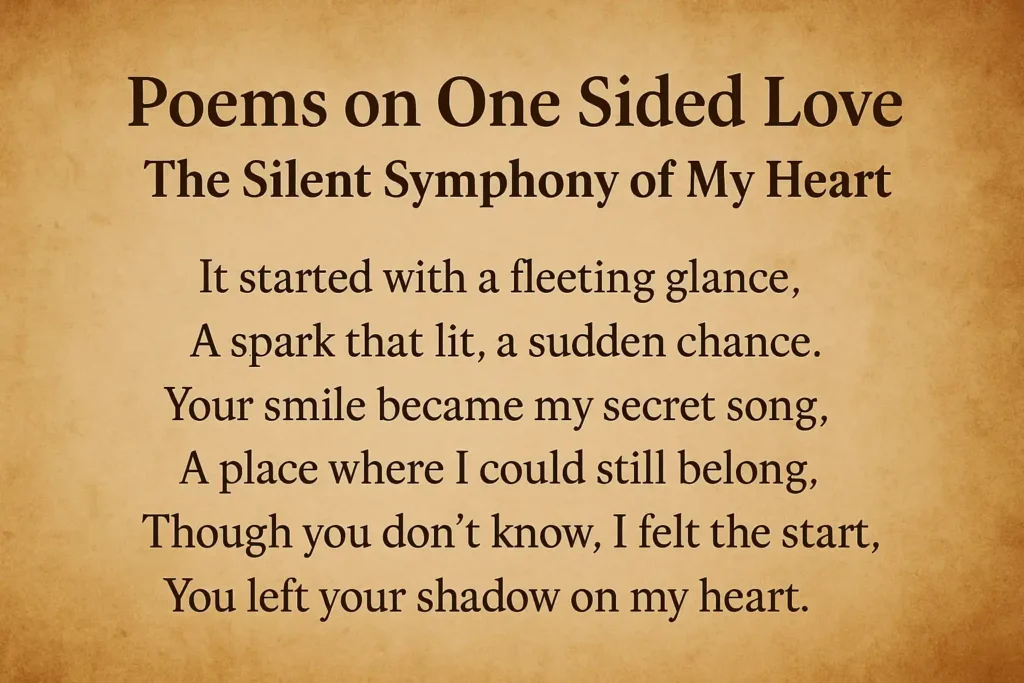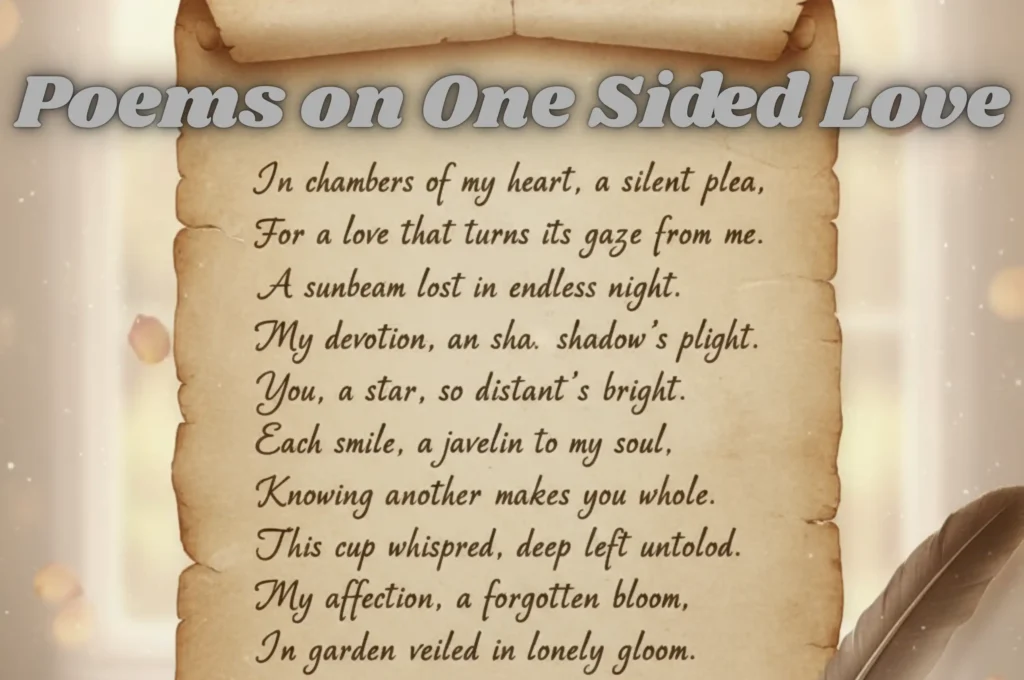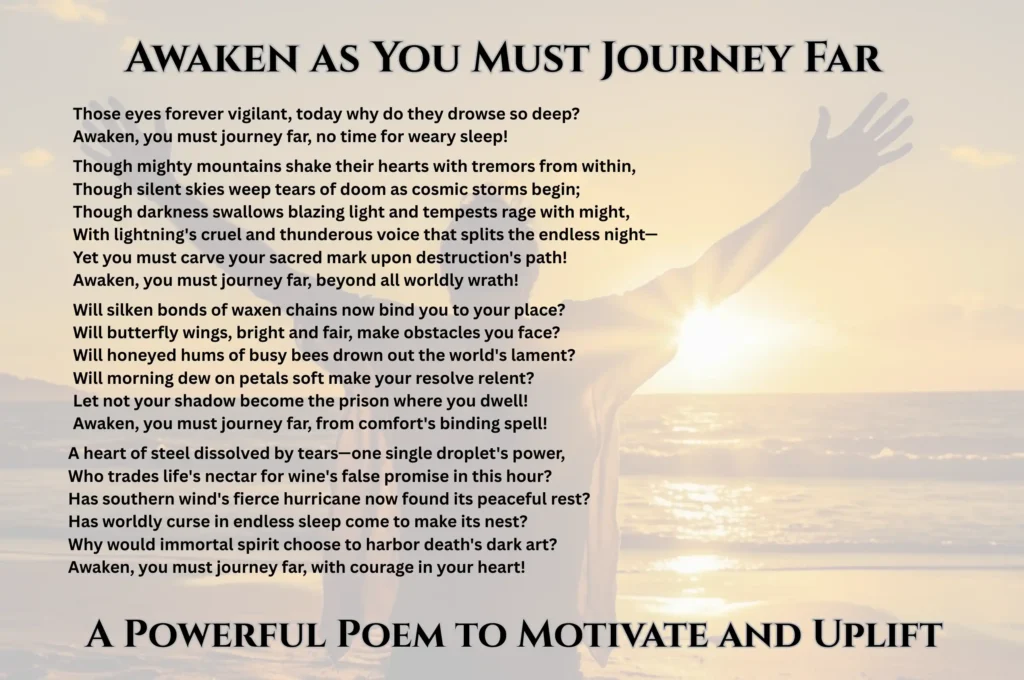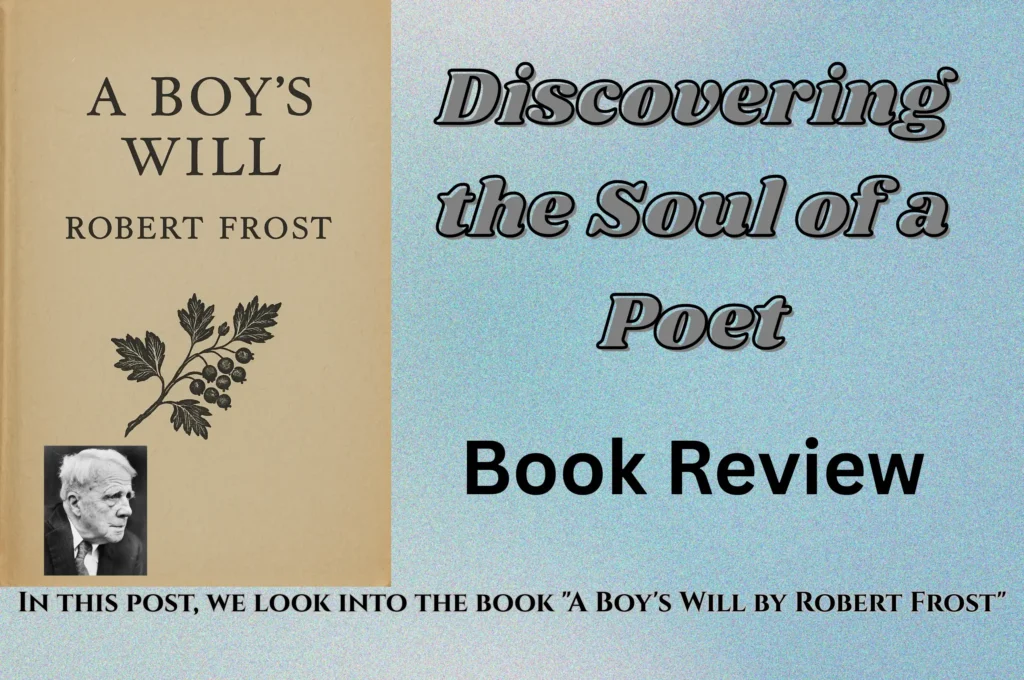“I felt a Funeral in my Brain” is a poignant and evocative poem written by Emily Dickinson. It explores themes of mental anguish, existential crisis, and the breakdown of the self. The poem is structured in a way that mirrors the experience of a funeral procession, with each stanza progressing through stages of mourning and disintegration. Let us look into the “I felt a Funeral in my Brain” Lyrics and Meaning. We will analyze and look into the nature of the poem.
Also Read: “No Coward Soul Is Mine” Poem by EMILY BRONTË
Table of Contents
I felt a funeral in my brain lyrics
A Poem by Emily Dickinson
I felt a Funeral, in my Brain,
~ Emily Dickinson
And Mourners to and fro
Kept treading – treading – till it seemed
That Sense was breaking through –
And when they all were seated,
A Service, like a Drum –
Kept beating – beating – till I thought
My mind was going numb –
And then I heard them lift a Box
And creak across my Sou
With those same Boots of Lead, again,
Then Space – began to toll,
As all the Heavens were a Bell,
And Being, but an Ear,
And I, and Silence, some strange Race,
Wrecked, solitary, here –
And then a Plank in Reason, broke,
And I dropped down, and down –
And hit a World, at every plunge,
And Finished knowing – then –
Source: The Poems of Emily Dickinson: Variorum Edition (Harvard University Press, 1983)
I felt a funeral in my brain meaning
I felt a Funeral, in my Brain,
~ Emily Dickinson
And Mourners to and fro
Kept treading – treading – till it seemed
That Sense was breaking through –
Source: The Poems of Emily Dickinson: Variorum Edition (Harvard University Press, 1983)
“I felt a Funeral, in my Brain,” – This opening line sets the tone for the poem, metaphorically describing the speaker’s mental state as akin to experiencing a funeral procession within their own mind. This suggests a profound sense of inner turmoil or psychological distress.
“And Mourners to and fro Kept treading – treading – till it seemed That Sense was breaking through -” – Here, the speaker describes the procession of mourners moving back and forth within their mind, symbolizing a relentless and overwhelming feeling of grief or anguish. The repetition of “treading” emphasizes the continuous and repetitive nature of this mental state, as if the mourners are pacing back and forth. The phrase “till it seemed That Sense was breaking through” suggests that the speaker’s ability to comprehend or make sense of their thoughts is being pushed to its limits, as if their sanity is on the verge of breaking down.
Overall, these lines convey a sense of profound psychological distress and inner turmoil experienced by the speaker. They vividly illustrate the intensity of the speaker’s mental anguish through the powerful metaphor of a funeral procession taking place within their own mind.
And when they all were seated,
~ Emily Dickinson
A Service, like a Drum –
Kept beating – beating – till I thought
My mind was going numb –
Source: The Poems of Emily Dickinson: Variorum Edition (Harvard University Press, 1983)
“And when they all were seated,” – This line suggests that the mourners have taken their places for the funeral service, continuing the metaphor of the speaker’s mental state as a funeral procession within their own mind.
“A Service, like a Drum -” – Here, the speaker compares the funeral service to the beating of a drum. This comparison evokes a sense of rhythm and repetition, as well as a feeling of heaviness or intensity.
“Kept beating – beating – till I thought My mind was going numb -” – The repetition of “beating” emphasizes the relentless and overwhelming nature of the funeral service within the speaker’s mind. The speaker describes feeling as though their mind is becoming numb or overwhelmed by the constant drumming, suggesting a loss of comprehension or control.
Overall, these lines continue to convey the intense psychological distress experienced by the speaker. The comparison of the funeral service to the beating of a drum underscores the sense of heaviness and repetition, while the description of the speaker’s mind going numb highlights the profound impact of this mental anguish.
And then I heard them lift a Box
~ Emily Dickinson
And creak across my Sou
With those same Boots of Lead, again,
Then Space – began to toll,
Source: The Poems of Emily Dickinson: Variorum Edition (Harvard University Press, 1983)
“And then I heard them lift a Box” – The speaker describes hearing the sound of mourners lifting a box, likely representing a coffin or casket. This imagery further emphasizes the funeral procession taking place within the speaker’s mind.
“And creak across my Soul” – The creaking of the box across the speaker’s soul suggests a profound and unsettling impact on their inner being. It emphasizes the weight and heaviness of the funeral procession within the speaker’s consciousness.
“With those same Boots of Lead, again,” – This line continues the metaphor of the mourners wearing heavy boots, suggesting the burdensome and oppressive nature of the mental anguish experienced by the speaker. The repetition of “again” reinforces the sense of recurrence and repetition in the speaker’s mental state.
“Then Space – began to toll,” – The mention of “Space” tolling suggests a feeling of emptiness or void within the speaker’s mind. It evokes a sense of vastness and expansiveness, perhaps symbolizing the overwhelming sense of isolation and despair experienced by the speaker.
Overall, these lines continue to convey the intense psychological distress and existential crisis experienced by the speaker. The imagery of the funeral procession and the heavy boots of the mourners vividly illustrate the weight and oppressive nature of the mental anguish portrayed in the poem.
As all the Heavens were a Bell,
~ Emily Dickinson
And Being, but an Ear,
And I, and Silence, some strange Race,
Wrecked, solitary, here –
Source: The Poems of Emily Dickinson: Variorum Edition (Harvard University Press, 1983)
“As all the Heavens were a Bell,” – This line metaphorically suggests that the entire heavens, or the universe, are ringing like a bell. This imagery evokes a sense of vastness and resonance, as if the entire cosmos is filled with sound.
“And Being, but an Ear,” – Here, the speaker implies that existence or life itself is merely an organ of perception, akin to an ear. This suggests a profound existential perspective, viewing life as a vessel for experiencing the world rather than an active participant in it.
“And I, and Silence, some strange Race,” – The speaker describes themselves and silence as belonging to a “strange Race,” implying a sense of alienation or disconnection from the world around them. This metaphorical language emphasizes the speaker’s isolation and solitude amidst their mental turmoil.
“Wrecked, solitary, here -” – The final line reinforces the speaker’s sense of being “wrecked” or broken, as well as their overwhelming solitude. It suggests a feeling of being adrift or stranded in their own consciousness, with no external support or connection.
Overall, these lines convey a profound sense of existential crisis and isolation experienced by the speaker. The imagery of the heavens as a bell and existence as an ear, as well as the metaphor of the speaker as part of a “strange Race,” underscore the speaker’s alienation from the world around them. The final line emphasizes the speaker’s sense of being utterly alone and adrift in their own mental landscape.
And then a Plank in Reason, broke,
~ Emily Dickinson
And I dropped down, and down –
And hit a World, at every plunge,
And Finished knowing – then –
Source: The Poems of Emily Dickinson: Variorum Edition (Harvard University Press, 1983)
“And then a Plank in Reason, broke,” – Here, the speaker describes a sudden rupture or collapse in their capacity for reason or rational thought. This metaphor suggests a breakdown in the speaker’s mental faculties, as if a foundational element of their ability to comprehend the world has given way.
“And I dropped down, and down -” – The speaker describes a sensation of falling or descending, which could symbolize a loss of control or a descent into madness. This imagery reinforces the sense of disintegration and disorientation experienced by the speaker.
“And hit a World, at every plunge,” – Each plunge or descent represents a collision with a new reality or understanding, suggesting a series of jarring and disorienting experiences. This imagery emphasizes the speaker’s fragmented and chaotic mental state, as they grapple with a succession of overwhelming sensations or realizations.
“And Finished knowing – then -” – The final line suggests a cessation of understanding or comprehension. The speaker describes reaching a point where they no longer have the capacity to know or understand, as if their mental faculties have been completely overwhelmed or extinguished.
Overall, these lines convey a sense of profound disintegration and loss of mental coherence experienced by the speaker. The metaphor of a plank in reason breaking, followed by a descent into chaos and a cessation of understanding, underscores the intensity of the speaker’s mental anguish and existential crisis.
I felt a funeral in my brain summary
“I felt a Funeral, in my Brain” is a poem by Emily Dickinson that explores themes of psychological turmoil, existential crisis, and the breakdown of the self. The poem begins with the speaker metaphorically experiencing a funeral procession within their own mind, symbolizing a profound sense of inner turmoil and mental anguish. As the poem progresses, the speaker describes the relentless procession of mourners, the beating of a funeral service like a drum, and the sensation of their mind going numb.
The poem culminates in the speaker’s perception of their mental faculties breaking down completely, with a “Plank in Reason” snapping and the speaker descending into a chaotic and disorienting mental state. Ultimately, the poem ends with a sense of resignation and acceptance, as the speaker describes reaching a point where they no longer have the capacity to comprehend or understand.
Overall, “I felt a Funeral, in my Brain” is a deeply introspective and emotionally charged exploration of the human psyche and the experience of mental anguish. It vividly captures the sense of disintegration and loss of self experienced by the speaker, while also conveying a profound sense of existential despair and isolation.
What kind of poem is I felt a funeral in my brain?
“I felt a Funeral, in my Brain” by Emily Dickinson is typically categorized as a lyric poem. Lyric poetry is characterized by its expression of thoughts and emotions of a single speaker, often in a musical or song-like manner.
This poem fits into this category as it explores the speaker’s internal psychological experience, conveying intense emotions and existential themes through vivid imagery and metaphor. The poem’s structure and language are highly evocative, inviting readers to delve into the speaker’s mental and emotional landscape.
Furthermore, the poem can also be considered an example of confessional poetry, as it reflects the poet’s personal experiences and emotions, providing readers with insight into Dickinson’s inner world and psyche.




